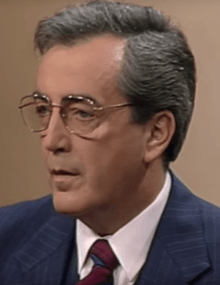1986 Austrian legislative election
Early parliamentary elections were held in Austria on 23 November 1986.[1] They were called by Chancellor Franz Vranitzky of the Socialist Party (SPÖ), as he was not prepared to continue the coalition government with new Freedom Party leader Jörg Haider, who had ousted Norbert Steger at the party convention.
| |||||||||||||||||||||||||||||||||||||||||||||||||||||||||||||||||
183 seats in the National Council of Austria 92 seats needed for a majority | |||||||||||||||||||||||||||||||||||||||||||||||||||||||||||||||||
|---|---|---|---|---|---|---|---|---|---|---|---|---|---|---|---|---|---|---|---|---|---|---|---|---|---|---|---|---|---|---|---|---|---|---|---|---|---|---|---|---|---|---|---|---|---|---|---|---|---|---|---|---|---|---|---|---|---|---|---|---|---|---|---|---|---|
| |||||||||||||||||||||||||||||||||||||||||||||||||||||||||||||||||
| |||||||||||||||||||||||||||||||||||||||||||||||||||||||||||||||||
| This article is part of a series on the |
| Politics of Austria |
|---|
 |
|
|
|
|
|
|
|
The SPÖ won the most seats, and formed a grand coalition with the Austrian People's Party, as neither were willing to work with Haider. Voter turnout was 90.5%.[2]
Results
| Party | Votes | % | Seats | +/– |
|---|---|---|---|---|
| Socialist Party of Austria | 2,092,024 | 43.1 | 80 | –10 |
| Austrian People's Party | 2,003,663 | 41.3 | 77 | –4 |
| Freedom Party of Austria | 472,205 | 9.7 | 18 | +6 |
| Green Alternative-Freda Meissner-Blau List | 234,028 | 4.8 | 8 | New |
| Communist Party of Austria | 35,104 | 0.7 | 0 | 0 |
| Action List - I've Had Enough | 8,100 | 0.2 | 0 | New |
| Green Alternatives-Democratic List | 6,005 | 0.1 | 0 | New |
| Carinthian Greens-VGÖ-VÖGA-Independent Councillors | 1,059 | 0.0 | 0 | New |
| Invalid/blank votes | 88,110 | – | – | – |
| Total | 4,940,298 | 100 | 183 | 0 |
| Source: Nohlen & Stöver | ||||
gollark: I do own the company, after all.
gollark: PC_Cat: PotatOS inevitably.
gollark: The Chorus City signs use it.
gollark: BomberPlayz_: I think within about 1 or 2 TPS of the real value.
gollark: Also, you can infer TPS with decent accuracy without using the API at all.
References
- Dieter Nohlen & Philip Stöver (2010) Elections in Europe: A data handbook, p196 ISBN 978-3-8329-5609-7
- Nohlen & Stöver, p216
This article is issued from Wikipedia. The text is licensed under Creative Commons - Attribution - Sharealike. Additional terms may apply for the media files.
.jpg)

.jpg)
.jpg)

